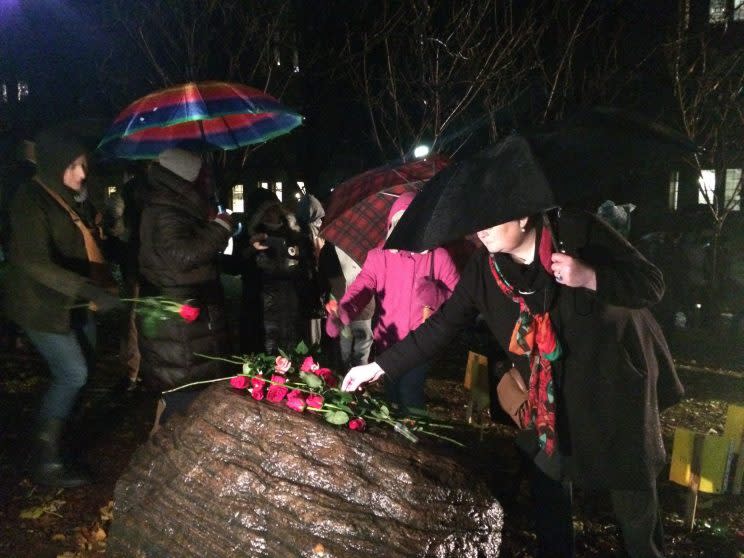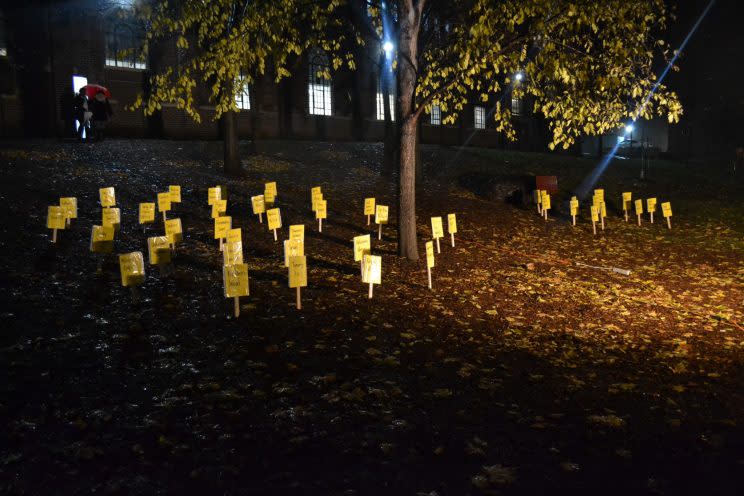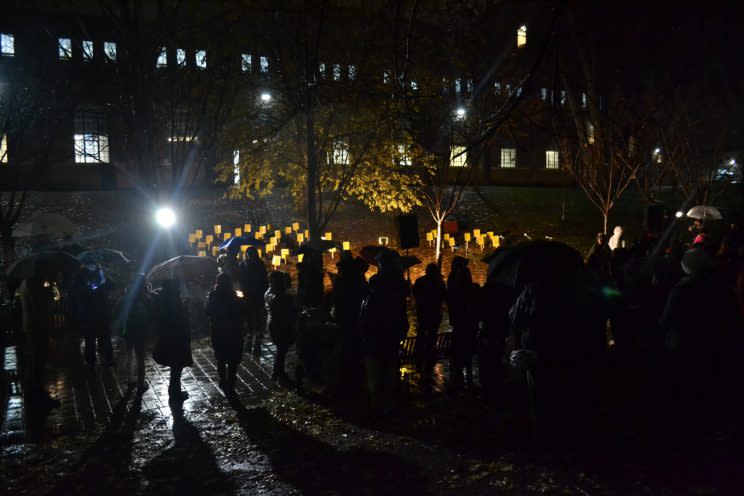Somber Toronto vigil a time to reflect on the national day of remembrance and action on violence against women

A candlelight vigil was held Tuesday in Toronto to commemorate the 14 women who lost their lives in the 1989 Montreal massacre.
It was one of dozen such events held across country to mark the national day of remembrance and action on violence against women, enacted two years after the deadly shooting.
More from our series:
Remembering the 14 victims of the École Polytechnique massacre
‘I thought everything we’d gained, we’d have it forever’: Survivors of the Montreal Massacre on the vulnerability of progress
Montreal Massacre left ‘indelible mark’ on an engineering community still striving for more women
Survivors, activists work to keep the lessons of the Montreal Massacre resonating with young Canadians
PHOTOS: 10 celebrities who spoke out on violence against women
VIDEO: How millennials are remembering the Montreal Massacre
With the rain in Toronto, the somber event — held yearly since 1990 by grassroots organization Women Won’t Forget — saw fewer than 100 people come out to light a candle and lay a rose in honour of women who have been victims of gender-based violence.
“Women Won’t Forget has been holding a vigil every year at Philosopher’s Walk. There are 14 oak trees that have been planted here. One for each of the women that were murdered at that time,” Gina Peixoto, one of the organizers, said.
Philosopher’s Walk on the University of Toronto campus acts as a memorial site for women who have lost their lives to violence. In addition to the trees, a large pink granite boulder and an engraved plaque stand in memory.

On the small hill where the vigil’s speakers stood on Tuesday, names of women who were the victims of gender-based violence were displayed.
On one side, the names of the 14 women killed in the Montreal massacre and on the other, names of women who were killed just this year in Ontario, Peixoto said.
“Every year since 1989, we have been adding 30 new names. That has not changed,” she said.
That is why this vigil holds so much significance for the organizers and those who attend regularly.
Caroline Bennett-AbuAyyash, a project coordinator at Mount Sinai Hospital, moved from London, Ont., to Toronto four years ago and has been coming to the vigil every year since.
“It’s the least I could do to remember women who lost their lives to violence and to honour other women who are still living through it,” she said.
That feeling resonates with Karen Lau, a Toronto school teacher, who has been coming for three years.

“It’s important to recognize and remember that, in our society, we have systematic injustice. At school, we organized peer-on-peer workshops to talk about those issues,” Lau said.
Expanding the conversation and seeing women in important roles is key to seeing a balance in equality, according to Alberta Johnson, a Ryerson University student studying public administration and governance.
“I hope to see more women in power — so on the political stage, in university administration, sciences, and corporate boards to really promote those ideas of gender equality,” Johnson, who also completed a science degree in Manitoba, said.
“It’s such a nice feeling of solidarity and togetherness. Us thinking about how it could happen to anyone. There’s lot of camaraderie in that,” Bennett-AbuAyyash said.
The event included a healing ceremony, spoken and musical performances, and ended with naming the women who have died in 2015 followed by a moment of silence.


